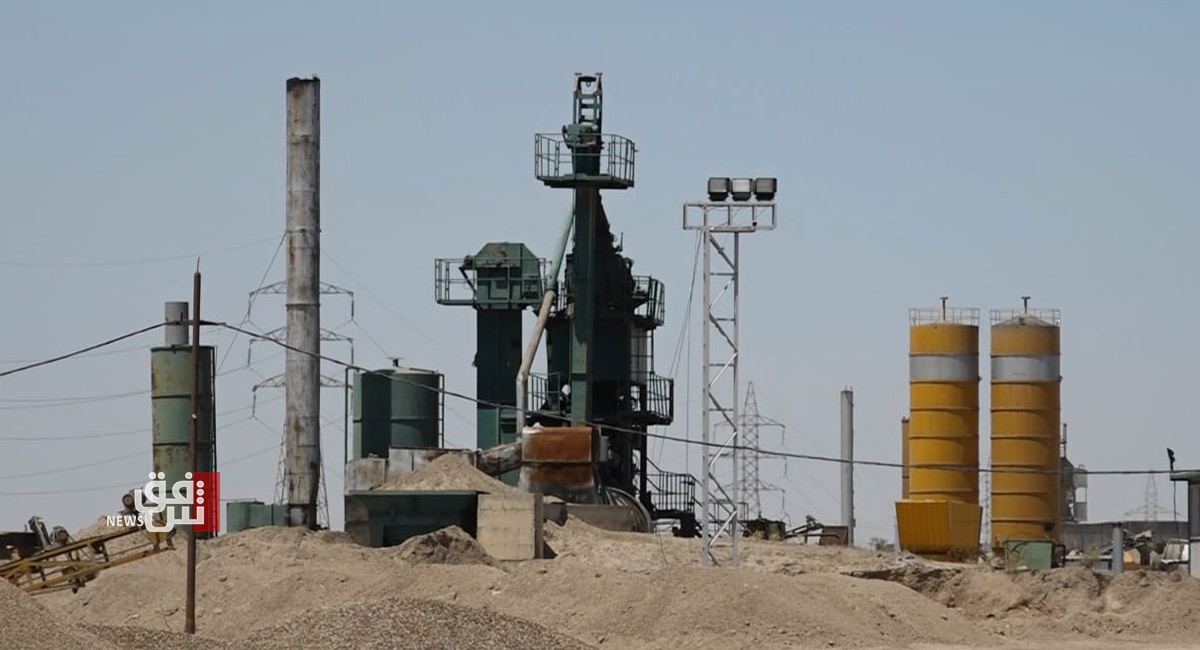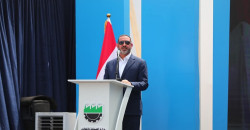Iraq's "Mother of Phosphate": How the successive governments' neglect is strangling Akashat

Shafaq News / Akashat, or The "mother of phosphate mines" as named locally, is a city located south of Al-Qa'im district far west of Al-Anbar Governorate, close to the Syrian border. The city's name gives the impression that it is one of the richest cities in Iraq as it includes one of the largest phosphate mines in the Middle East. However, its reality is quite different from what the imagination might illustrate due to government neglect.
ISIS's occupation of the city and subsequent military operations to liberate it (2016-2017) caused most of the pure and raw phosphate extraction and production plants to leave the mines. Especially since machinery, extraction equipment, purification lines, etc., were either stolen or destroyed.
Akashat was founded in 1976 as a new administrative unit. Residential complexes were built for employees and workers in the phosphate industry, in addition to the construction of a railway line to transport production from phosphate factories to Baghdad and from there to Basra for export. However, since the imposition of the economic embargo on Iraq in 1991, Iraq's export of the product has ceased, making it limited to domestic industries only, mostly for the agricultural sector.
The segment of workers and the unemployed in Al-Anbar demands the government to pay attention to this large industrial edifice and other factories - to create job opportunities, enabling them to support their families.
"The phosphate factories have been stalled for years after they were a livelihood source for thousands of families who are now in a very bad economic situation", Khairallah Salah, a resident of the town who was one of the phosphate miners, told Shafaq News agency.
He added, "If the government cannot restart these factories, they should call on investment companies to restart them."
For his part, Nibras Ahmed appealed to Al-Kadhimi government not to repeat the unfulfilled promises that Al-Abadi and Abdul Mahdi have made, "Everyone is talking about maximizing the state's resources. Phosphate was an important asset for Iraq besides oil, so why do they not revive it? It neither costs too much nor takes a long time."
"The state was exporting phosphates from Al-Anbar, and after Al-Kadhimi took over the prime ministership, we tried to have an investment opportunity for this city. Phosphate plants have been referred to an investor, and we hope that the Ministry of Industry will approve the referral so that the rehabilitation of the plants can begin", Al-Anbar's Governor, Ali Farhan Al-Dulaimi, said in an interview followed by Shafaq News agency.
"These projects use raw materials found in Al-Anbar to produce phosphates, but we were surprised by a letter from former Prime Minister, Adel Abdul Mahdi, to stop mineral investment in the governorate and Iraq in general", Mahdi Al-Nouman, head of the Al-Anbar Investment Authority, stated to Shafaq News agency.
"Mineral investment is stipulated by law, and we, as jurists, know that the law must be disrupted by law or by explicit parliamentary legislation," he added.
Al-Nouman also pointed out, "Stopping mineral investment in a country that needs foreign currency and support of the industrial sector is a wrong and ill-considered decision".





